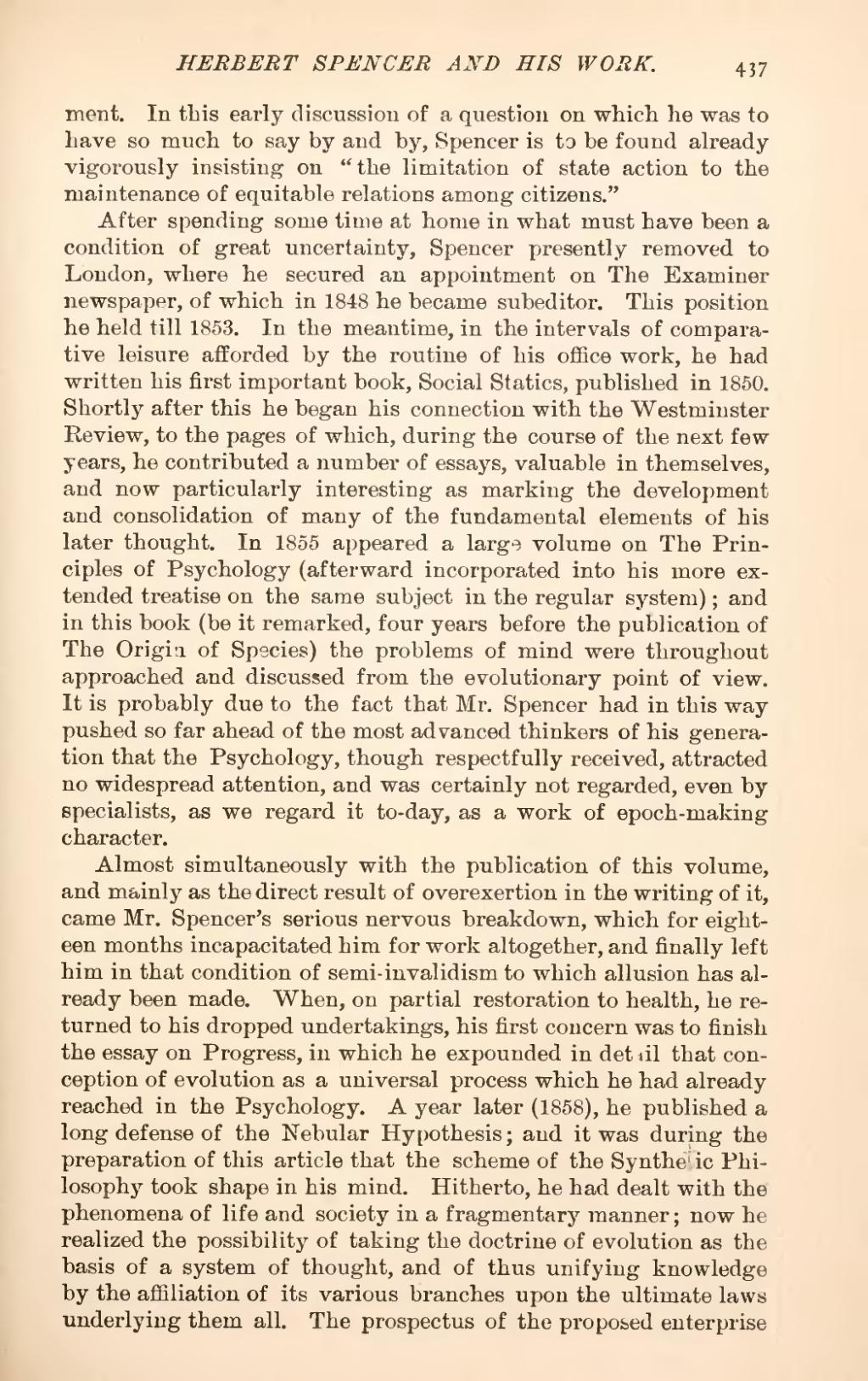ment. In this early discussion of a question on which he was to have so much to say by and by, Spencer is to be found already vigorously insisting on "the limitation of state action to the maintenance of equitable relations among citizens."
After spending some time at home in what must have been a condition of great uncertainty, Spencer presently removed to London, where he secured an appointment on The Examiner newspaper, of which in 1848 he became subeditor. This position he held till 1853. In the meantime, in the intervals of comparative leisure afforded by the routine of his office work, he had written his first important book. Social Statics, published in 1850. Shortly after this he began his connection with the Westminster Review, to the pages of which, during the course of the next few years, he contributed a number of essays, valuable in themselves, and now particularly interesting as marking the development and consolidation of many of the fundamental elements of his later thought. In 1855 appeared a large volume on The Principles of Psychology (afterward incorporated into his more extended treatise on the same subject in the regular system); and in this book (be it remarked, four years before the publication of The Origin of Species) the problems of mind were throughout approached and discussed from the evolutionary point of view. It is probably due to the fact that Mr. Spencer had in this way pushed so far ahead of the most advanced thinkers of his generation that the Psychology, though respectfully received, attracted no widespread attention, and was certainly not regarded, even by specialists, as we regard it to-day, as a work of epoch-making character.
Almost simultaneously with the publication of this volume, and mainly as the direct result of overexertion in the writing of it, came Mr. Spencer's serious nervous breakdown, which for eighteen months incapacitated him for work altogether, and finally left him in that condition of semi-invalidism to which allusion has already been made. When, on partial restoration to health, he returned to his dropped undertakings, his first concern was to finish the essay on Progress, in which he expounded in detail that conception of evolution as a universal process which he had already reached in the Psychology. A year later (1858), he published a long defense of the Nebular Hypothesis; and it was during the preparation of this article that the scheme of the Synthetic Philosophy took shape in his mind. Hitherto, he had dealt with the phenomena of life and society in a fragmentary manner; now he realized the possibility of taking the doctrine of evolution as the basis of a system of thought, and of thus unifying knowledge by the affiliation of its various branches upon the ultimate laws underlying them all. The prospectus of the proposed enterprise

